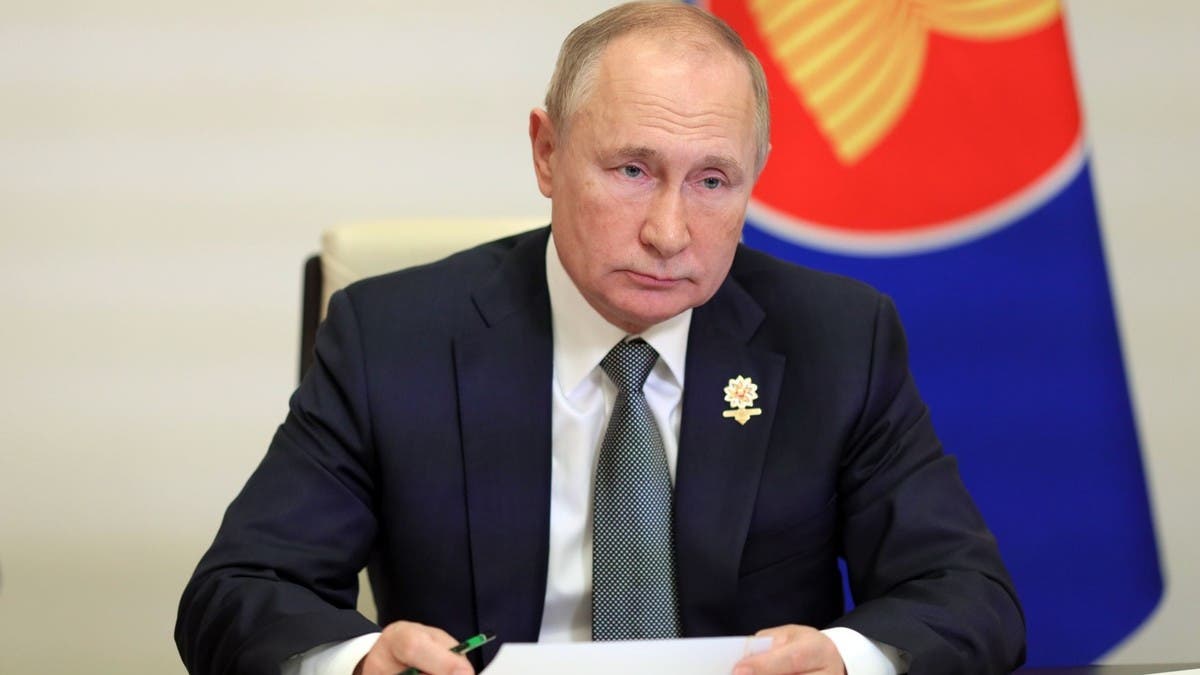The European Union can only blame its own policies for record gas prices as some of its members resell cheap Russian gas at much higher prices within the bloc, Russian President Vladimir Putin said on Friday.
Putin also called on the EU to approve a new Russian gas route, the Nord Stream 2 pipeline, to ease the price crunch.
For all the latest headlines follow our Google News channel online or via the app.
Europe’s benchmark gas price climbed to a new record on Tuesday, up almost 800 percent since the start of the year. The price eased on Friday, but it was still up more than 400 percent.
Nord Stream 2 is opposed by the United States and particularly several east European states, which say the pipeline will make the EU even more reliant on Russian gas, which already supplies 35 percent of the bloc’s gas needs.
The pipeline from Russia to Germany, which was built in September, is still awaiting regulatory approval from Berlin and Brussels.
“The additional gas supplies on the European gas market would surely reduce the price on an exchange, on the spot (market),” Putin was quoted as saying by news agency RIA at a joint meeting of the State Council and a council on science and education.
Adding to the squeeze, the Yamal-Europe pipeline that usually sends Russian gas to Western Europe was flowing in reverse for a fourth day on Friday, pumping fuel from Germany to Poland, data from German network operator Gascade showed.
Russian gas giant Gazprom has not booked gas transit capacity for exports via the Yamal-Europe pipeline for Dec. 25, auction results showed.
Gazprom usually books capacity via the route on a short-term basis, after Poland and Russia chose not to extend their long-term transit deal last year.
Putin said Poland had “sidelined” Russia from managing the Yamal-Europe pipeline, which has been working in reverse mode by sending gas eastward. The pipeline runs from Russia to Belarus and further to Poland and Germany.
“This does not increase the Russian gas volumes on the European market, so the price is rising,” Putin said according to Interfax news agency, about the reverse flows.
Putin said on Thursday that Germany was reselling Russian gas to Poland and Ukraine rather than relieving an overheated market.
In Ukraine, another transit route for Russian gas to Europe, the head of state gas transmission operator said Gazprom had reduced daily gas transit across Ukrainian territory to 87.7 million cubic meters (mcm) from 109 mcm.
“The reduction in gas supplies to the European Union at a time when prices reached $2,000 suggests that these are not economic decisions but purely political ones, aimed at increasing pressure on the EU to launch Nord Stream 2 on terms of the Russian Federation,” Sergiy Makogon wrote on Facebook.
The benchmark European gas price soared above 2,200 euros ($2,495) per 1,000 cubic meters on Tuesday.
Makogon said Europe had set a record for extracting gas from storage because of supply shortages.
Russia has repeatedly dismissed charges it has played politics over gas and says it is meeting all the amounts it is contracted to supply. Companies with supply deals have also said their contracts have been met.
Missing out
Russian Deputy Prime Minister Alexander Novak also said Europe was missing out on additional Russian supplies because of delays to Nord Stream 2.
“To my mind, European consumers are very interested in the project to start working, while the companies, which participate in it, they could have submitted additional requests as part of long-term relations on gas supplies via this new gas pipeline,” Novak told Russian state TV channel Rossiya-24.
He also said European leaders had made mistakes in reducing the use of long-term supply deals in favor of the spot market, where prices are more volatile.
“The countries, which receive gas via the long-term deals, they receive it much cheaper,” Novak said.
Europe’s red-hot gas market could find some relief from redirected cargoes of liquefied natural gas (LNG) from Asia as European prices make this diversion attractive.
Gazprom, which has a monopoly on Russia gas exports by pipeline, has not booked gas transit capacity for exports via the Yamal-Europe pipeline for Dec. 24, auction results showed on Friday.
Gascade’s data on the Yamal-Europe pipelines showed flows at the Mallnow metering point on the German-Polish border going east from Germany into Poland at an hourly volume of around 1,218,000 kilowatt hours (kWh/h) on Friday and were expected to stay at these levels during the day.
Data from Slovak pipeline operator Eustream showed capacity nominations for Friday’s Russian gas flows from Ukraine to Slovakia via the Velke Kapusany border point were at 739,843 MWh, down from Thursday’s 785,160 MWh.
That drop was being balanced by higher nominations for flows from the Czech Republic to Slovakia, meaning nominations for flows from Slovakia to the Austrian hub Baumgarten were roughly stable compared with the previous day.
Read more:
Germany warns Russia of consequences for Nord Stream if it attacks Ukraine
Russian natural gas exports to Europe via Yamal pipeline drop sharply
US to share Russia’s security proposals with allies amid standoff


 World3 years ago
World3 years ago
 World3 years ago
World3 years ago
 Business1 year ago
Business1 year ago
 Entertainment8 years ago
Entertainment8 years ago
 World8 years ago
World8 years ago
 Entertainment8 years ago
Entertainment8 years ago




